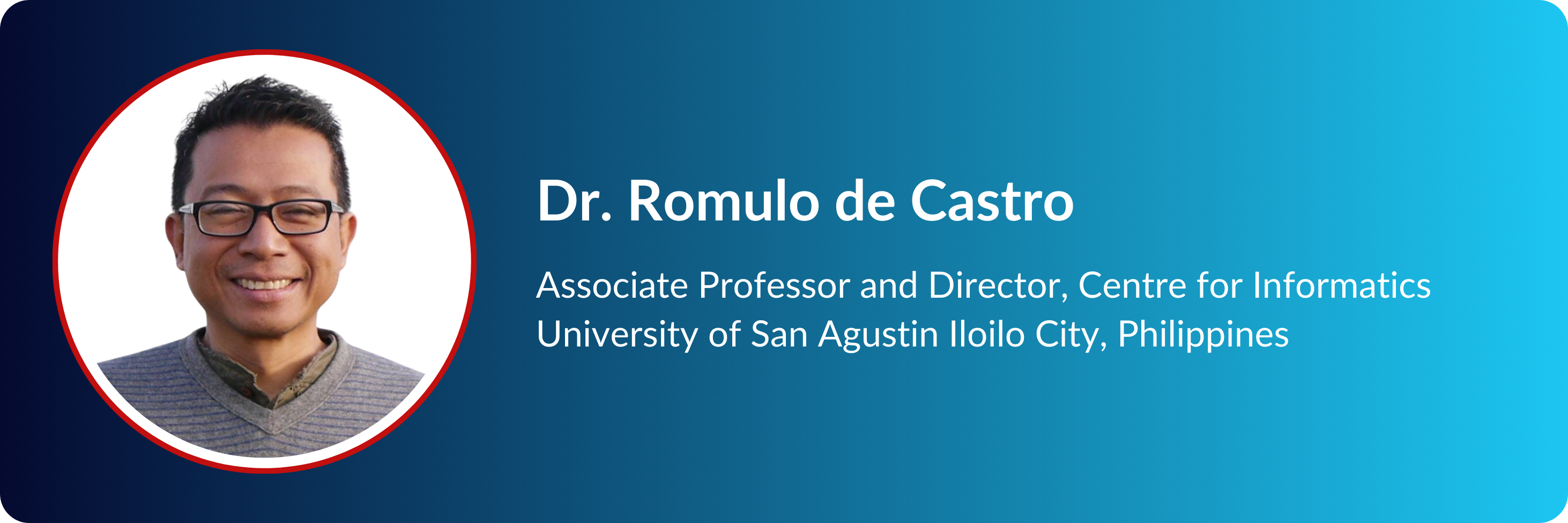Dr Romulo de Castro

Dr. Romulo de Castro is a neuroscientist and health informatician. He is the Director of the Center for Informatics at the University of San Agustin in Iloilo City (Philippines), and the lead for the 1) ATIPAN+, a 2024 laureate of the Global South eHealth Observatory, 2) MHAI (Diagnosing Mental Health Using AI on Speech) and 3) IHEC (Indigenous Health Equity Conversations) projects that are funded by the IDRC (International Development Research Centre, Canada), FCDO (Foreign, Commonwealth & Development Office, UK) and Columbia University’s Incite Global Change Program, respectively. He obtained his BS in Molecular Biology from the University of the Philippines and PhD in Biological Chemistry from the University of Texas Medical Branch (Galveston). He did his postdoctoral training in the neurosciences at Caltech and The Burnham Institute (San Diego, CA), and previously worked as a program officer of Autism Speaks.
Plenary Title: ATIPAN: From Telehealth to Digital Mental Health in Marginalized
Communities
Date: 16 July 2025, Wednesday
Time: 10.40 AM
Plenary Abstract
The ATIPAN Project was originally a social protection program that facilitated
access to healthcare services for remote underserved Indigenous and rural
low-income communities in Western Visayas (Region 6, Philippines) during
the COVID-19 pandemic. It has been proposed as a community-based digital
health strategy towards the implementation of universal healthcare (UHC)
in the Philippines and mentioned as one of “8 Great Ideas Changing Lives
Worldwide” by the Mental Health Commission of Canada (MHCC) last year.
Extensive social preparation and capacity building occurred rapidly, and
innovations by the communities further enhanced the program. The community-facilitated
telehealth service was widely accepted and delivered data on the health
of populations unreached by the country’s public healthcare system. Consequently,
the mental health issues of marginalised ethnic and disadvantaged Filipinos
surfaced which is now being addressed with telepsychiatry and the development
of AI to assist in diagnosing depression/anxiety from patients’ speech.
The program has also been developing surveillance to signal infectious
disease epidemics using telehealth data and modeling the mental health
repercussion of such in these vulnerable populations. Finally, interventions
focused on community mental well-being may be more appropriate and are
being pursued, including continuity of care (CoC) via health mapping, while
trying to identify entry points for digital health using this community-centric
perspective.

